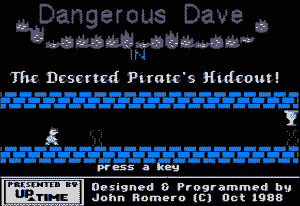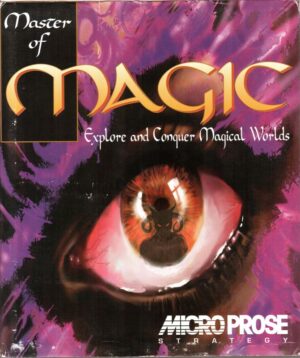Retro Replay Review
Gameplay
Overlord delivers a deep real-time strategic warfare experience that challenges players to master both macro- and micromanagement. You’ll be juggling large standing armies, economic production, and political stability across multiple extra-dimensional star systems. From the outset, the game presents you with an imposing scope: as the supreme authority of the Epsilon Galaxy, every decision you make can tip the balance of power in your favor or spell your downfall.
(HEY YOU!! We hope you enjoy! We try not to run ads. So basically, this is a very expensive hobby running this site. Please consider joining us for updates, forums, and more. Network w/ us to make some cash or friends while retro gaming, and you can win some free retro games for posting. Okay, carry on 👍)
Resource and planetary management lie at the core of Overlord. You can purchase specialized terraforming equipment to convert buffer worlds into lush agricultural havens, volatile volcanic planets ripe for mining, energy-rich deserts, or bustling urban centers. Each planet type offers unique bonuses—food, minerals, energy, or tax revenue—so strategic placement and timing of your improvements become vital for sustaining your war machine.
Combat in Overlord is relentless and high-stakes. Once you engage an enemy force in hyperspace, there is no turning back; retreating would require severing the hyperspace link—and destroying your own homeworld in the process. This “no retreat” mechanic heightens each battle’s tension, forcing you to carefully plan your troop compositions, build the right cruisers and battleships, and employ espionage to weaken opponents before committing to full-scale war.
Graphics
Visually, Overlord impresses with vibrant planetary vistas and detailed starfields. The terraforming effects are particularly satisfying: seeing a barren rock morph into a verdant Gaian paradise or a blazing volcanic furnace lends real weight to your strategic decisions. Lighting and particle effects during terraforming sequences enhance the sense of progression and transformation.
Units and ships are rendered with clear, readable silhouettes, ensuring that even in the heat of battle you can distinguish cruisers from capital ships or infantry from armored divisions. The UI overlays are intuitive, with planetary info panels and strategic maps designed for quick access. While the graphical fidelity might not push the absolute limits of hardware, it strikes a fine balance between performance and immersion, even on mid-range systems.
Environmental details shine through in cutscenes and victory animations. The art direction leans into a semi-realistic sci-fi aesthetic, focusing on functionality rather than over-the-top embellishments. This grounded approach reinforces the game’s serious tone—after all, we’re not merely exploring new planets, but waging war to preserve your imperial dominion.
Story
At its narrative heart, Overlord casts you as the unchallenged dictator of the Epsilon Galaxy. Things take a dramatic turn when a hyperdrive experiment unveils four “buffer” dimensions—uncharted realms teeming with barren planets that lie between your galaxy and a rival alien empire. As these powerful extraterrestrial factions close in, your leadership is tested like never before.
The game’s plot unfolds through mission briefings, in-engine cutscenes, and logs from both Epsilon scientists and alien commanders. You’ll uncover intrigue in every buffer world: spies relay secrets, political subterfuge simmers back home, and the relentless march of enemy fleets forces you to adapt or perish. The tension of potentially losing your homeworld if you sever the hyperspace link adds a palpable sense of dread to every strategic decision.
Overlord’s narrative is more than a backdrop; it informs your playstyle. Do you rule with an iron fist, collecting taxes ruthlessly to fund an unstoppable armada? Or do you play the diplomatic game, forging temporary alliances and trading technology to outmaneuver your foes? However you choose to proceed, the story remains cohesive, guiding you through key planetary conquests and moral crossroads.
Overall Experience
Overlord strikes a compelling balance between grand strategy and hands-on command. The learning curve is approachable for those familiar with RTS and 4X hybrids, yet the stakes are always high thanks to the no-retreat combat system. Players who appreciate meticulous planning and multi-layered decision-making will find themselves engrossed for hours on end.
Replayability comes from the freedom to prioritize different planetary types and military doctrines. One playthrough might focus on aggressive expansion with heavily armored cruisers, while another could emphasize economic dominance through energy-harvesting desert worlds. Emergent moments—like a surprise alien incursion or a terraforming equipment shortage—ensure no two campaigns feel identical.
For potential buyers seeking a strategic challenge set against a rich sci-fi backdrop, Overlord is a strong recommendation. It offers robust empire-building mechanics, tense real-time battles, and an overarching narrative that keeps you invested from the first hyperspace jump to the final conquest. If you’re ready to shed blood for supremacy and become the true Overlord of multiple dimensions, this game delivers on its ambitious premise.
 Retro Replay Retro Replay gaming reviews, news, emulation, geek stuff and more!
Retro Replay Retro Replay gaming reviews, news, emulation, geek stuff and more!









Reviews
There are no reviews yet.